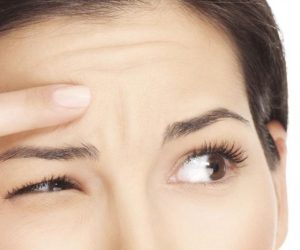
Process of Aging and How to Manage It
Aging is a complex process that varies as to how it affects each of us. Most research of aging agree that the interaction of many factors including heredity, environment, diet, exercise and past illnesses influences our lifespan.
No single factor can explain all aspects of aging but clinical studies revealed one of great importance – the oxidative stress in our cells. Oxidation happens naturally as by-product of all energy generating and consuming processes in our cells. In excess it cause a lot of damage too. To decrease oxidative stress in cells, we need to have a sufficient amount of antioxidants in our body every day. As the quality of our daily food is in decline, the need for good supplements as a source of antioxidants only grows.
Ubiquinol is Powerful Anti-Aging Protection
Cells are the basic building blocks of tissues in your body. Aging changes occur in all of the body’s cells, tissues and organs. These changes affect the functioning of all body systems. Ubiquinol is the active (non-oxided) form of CoQ10 which provides essential energy for your cells and protects them against oxidation stress. Around age 40 we start losing production of CoQ10. Studies showed that Ubiquinol supplements are up to 6 times more effective than ubiquinone (the oxidised and less potent form). Ubiquinol has two extra electrons. Because it has those two extra electrons and can donate them, it is a very strong lipid soluble antioxidant. The two main functions of Ubiquinol is cellular energy and cellular protection. There are other functions, it also helps regenerate vitamin E and vitamin C in your body.
Health Benefits of Ubiquinol
- helps soak up oxidative stress and free radicals;
- help keeping blood levels high in CoQ10;
- helps enjoy vitality and feeling young (slow down the process of aging in cells);
- strengthens heart and overall cardiovascular system.
- helps maintain healthy LDL cholesterol levels;
- helps decrease the inflammation during migraines.
Free Radicals - the Main Source of Aging
Medical studies suggest that free radicals – harmful molecules produced by the body as it processes oxygen – contribute to the aging process. Free radicals, also known as oxidants, are unstable and highly reactive atoms that have at least one unpaired electron. They can be formed naturally in the body or can be introduced into the body from external sources, such as smoking or pollution. When free radicals interact with cells, proteins and DNA in the body, they can cause damage by modifying their chemical structure.
Constant cell exposure to harmful free radicals over time causes aging. Medical observations demonstrated that regular heavy cigarette smoking could trigger faster skin wrinkles development.

It was noted that skin aging and skin wrinkles in women correlate with number of smoked cigarette per day and with duration of chronic smoking. More you smoke – faster your wrinkles will appear.

